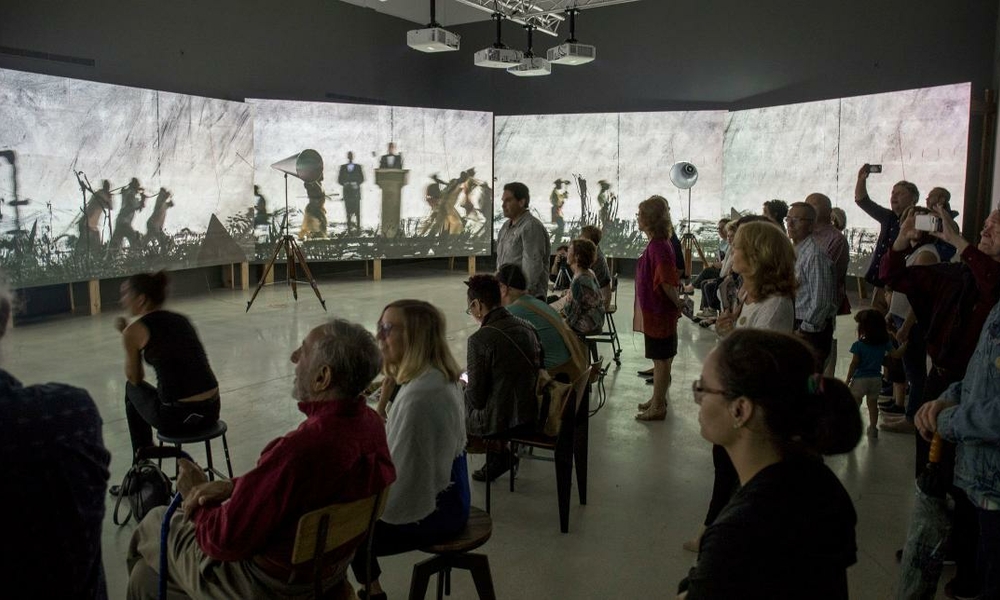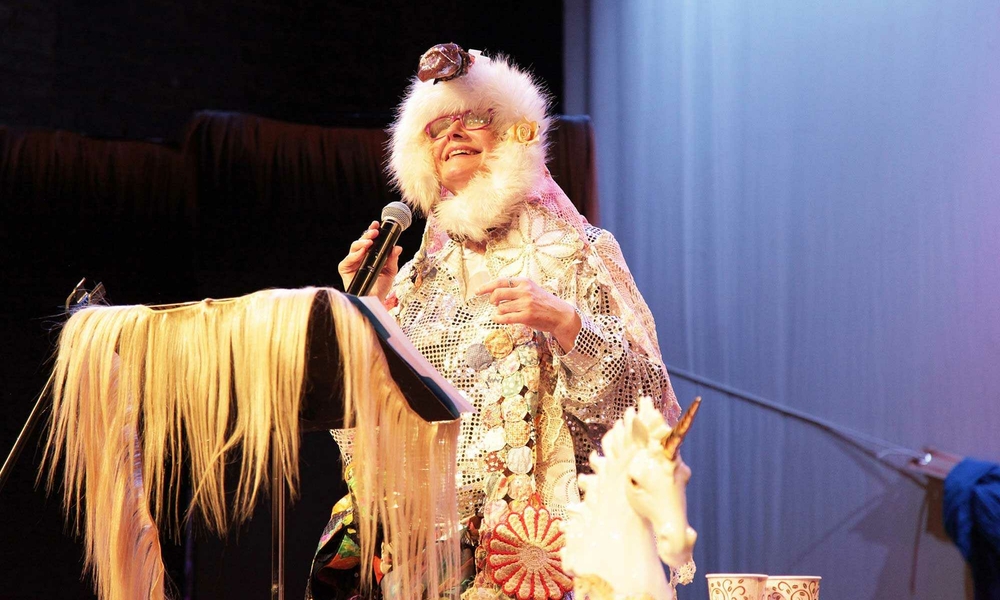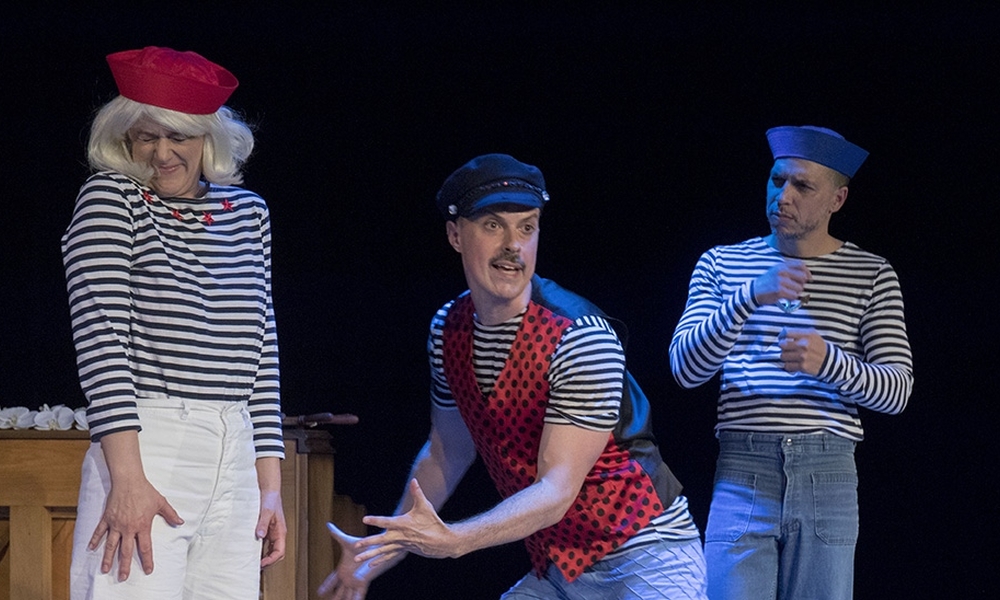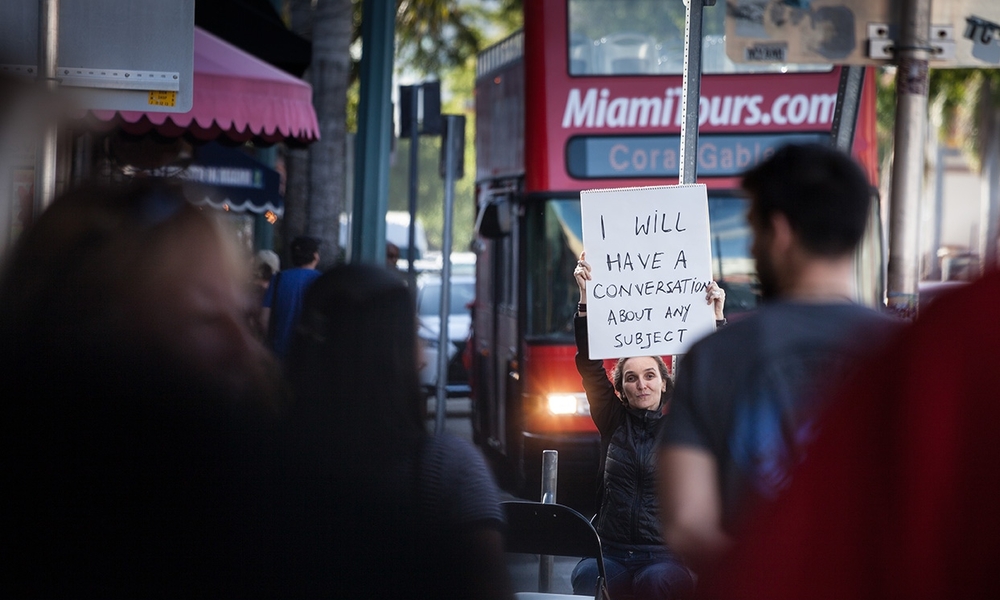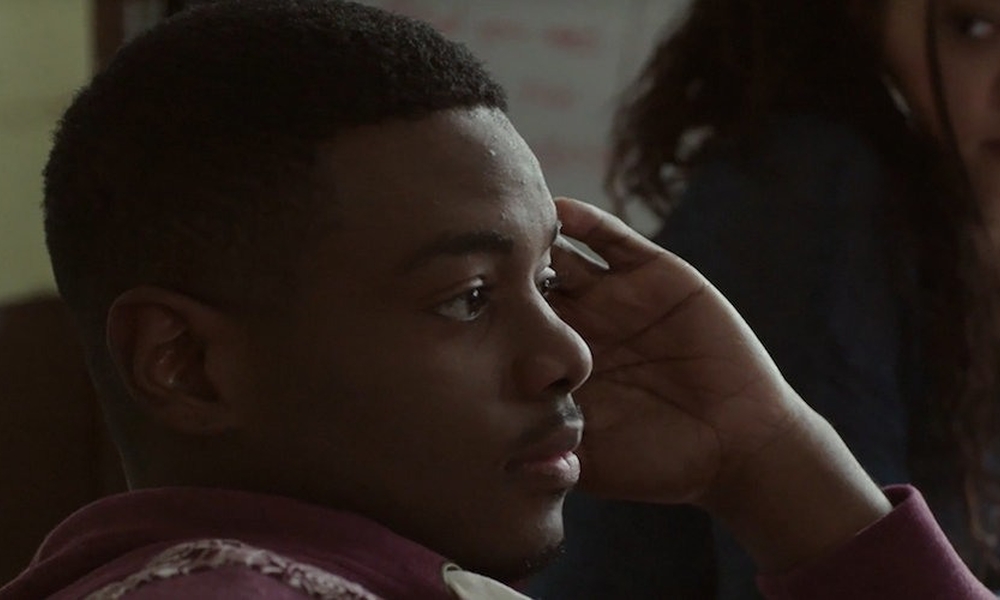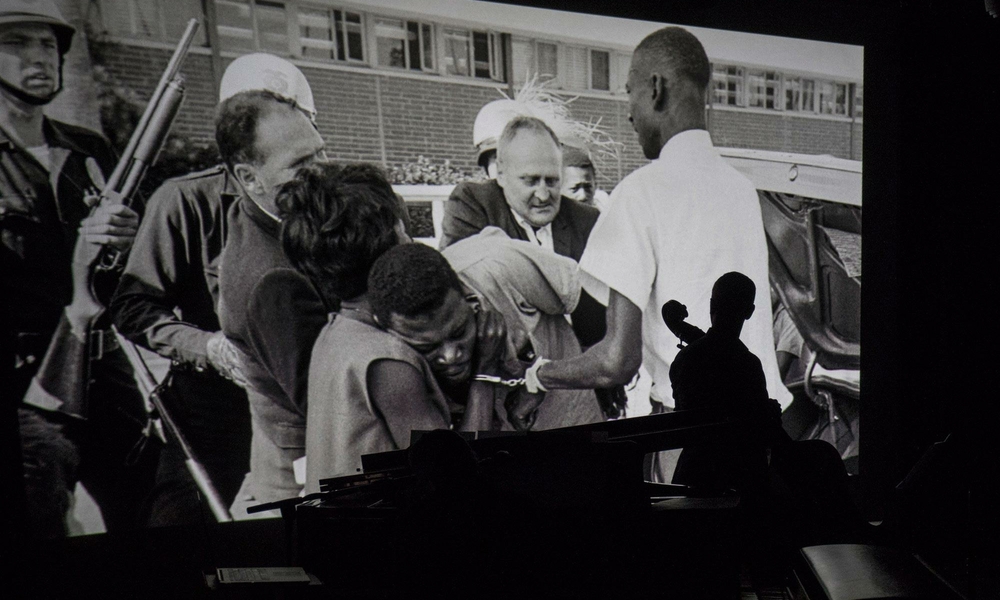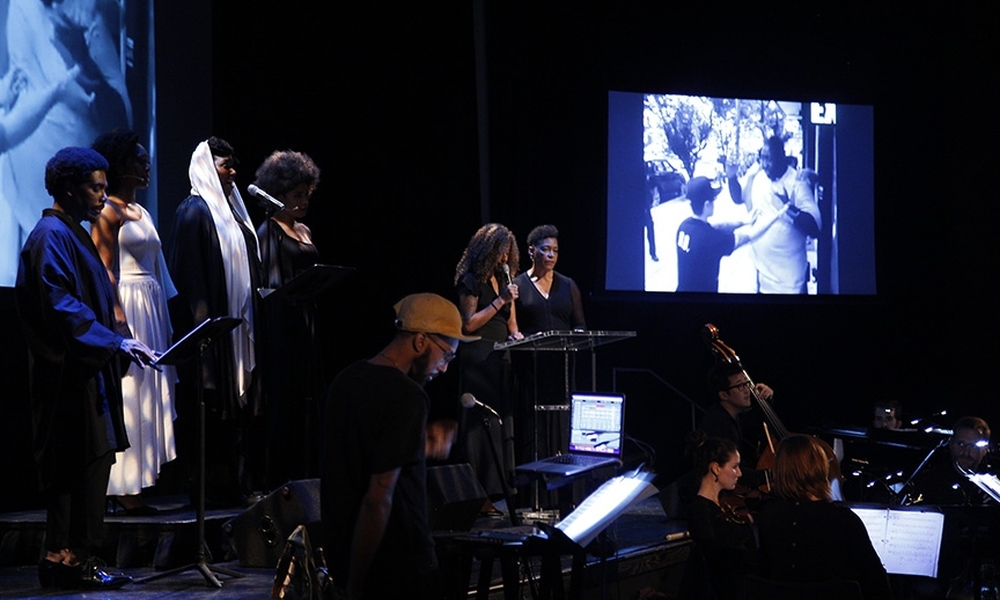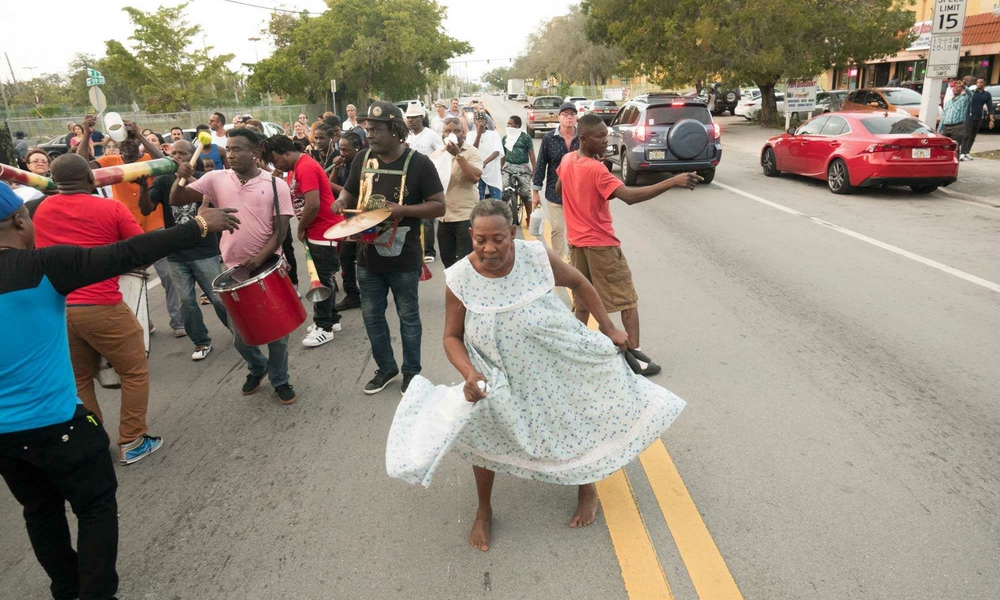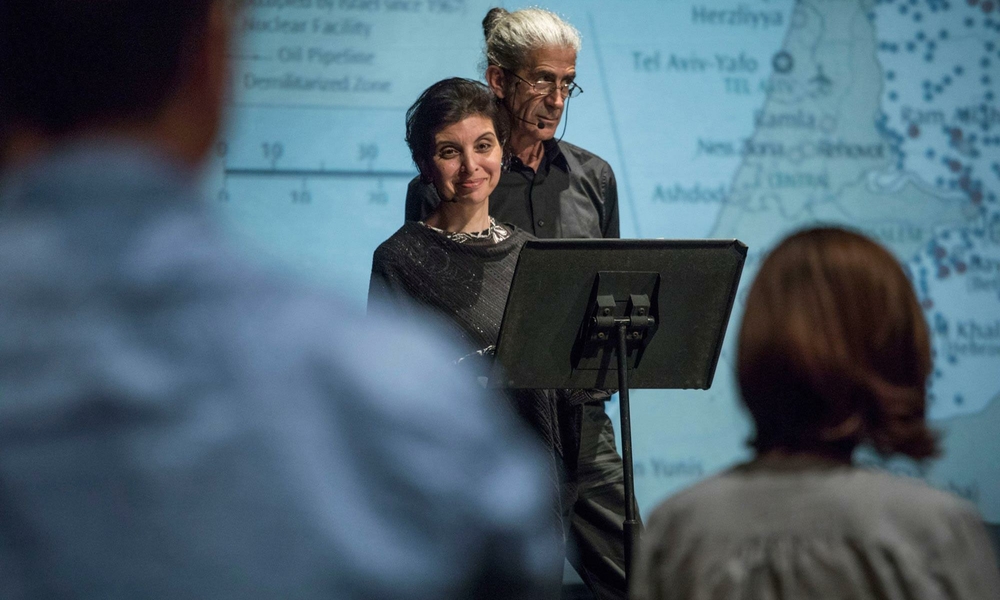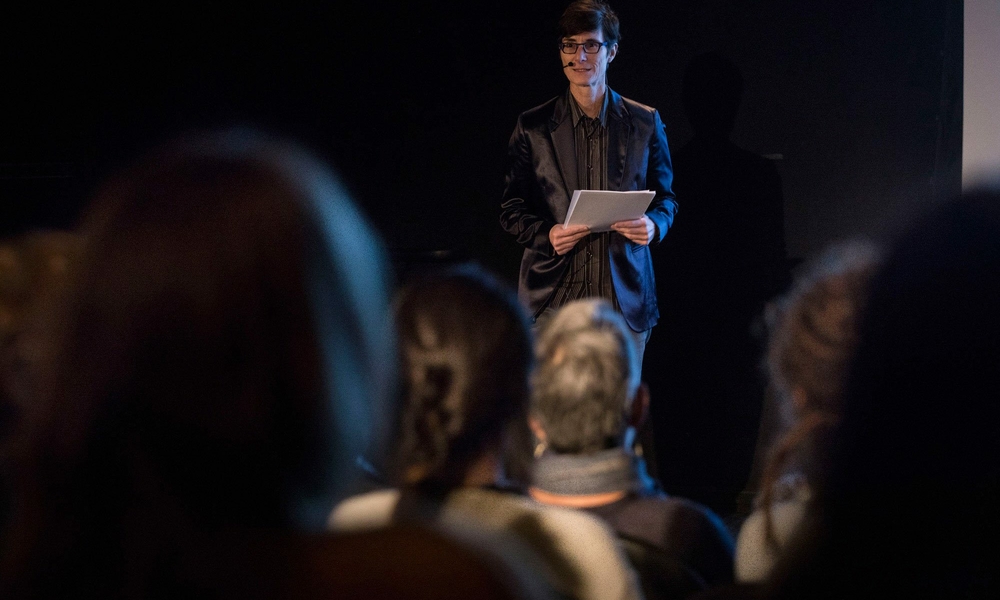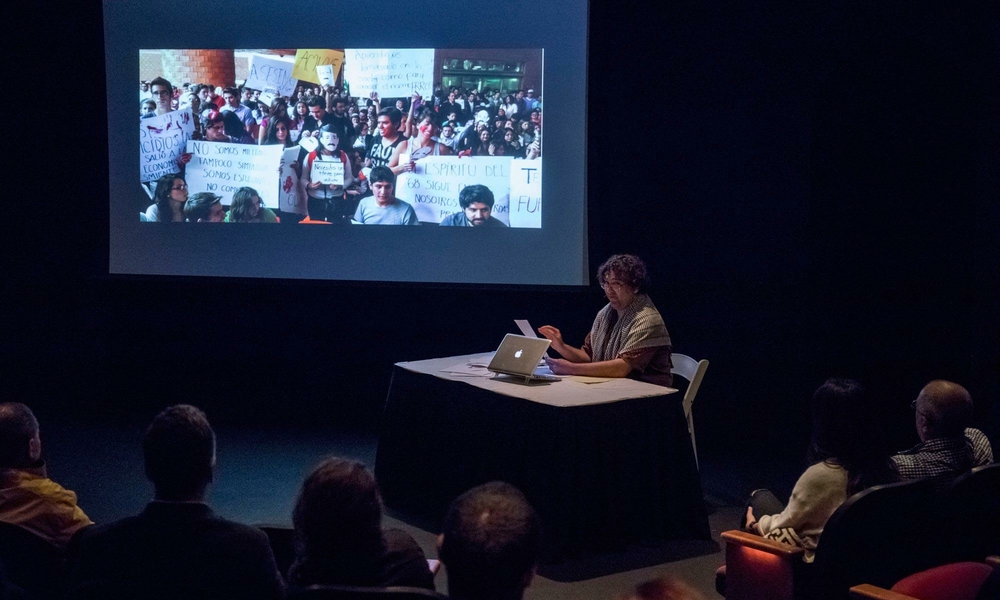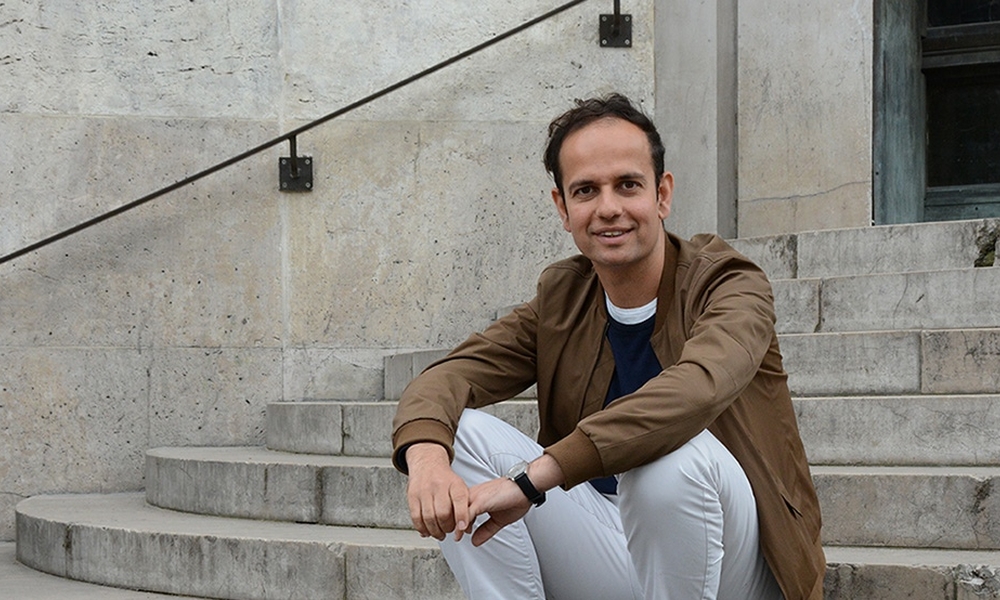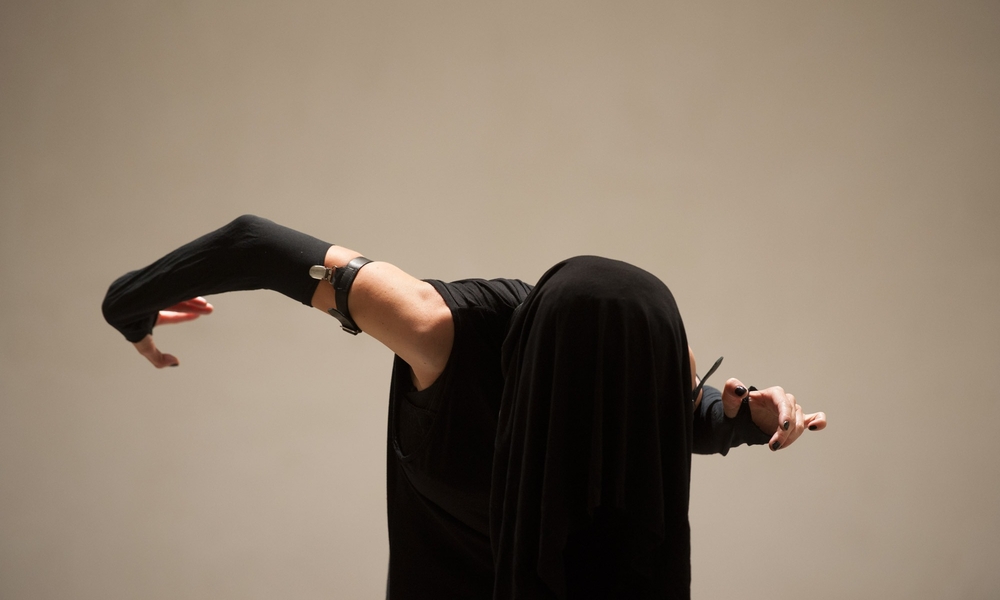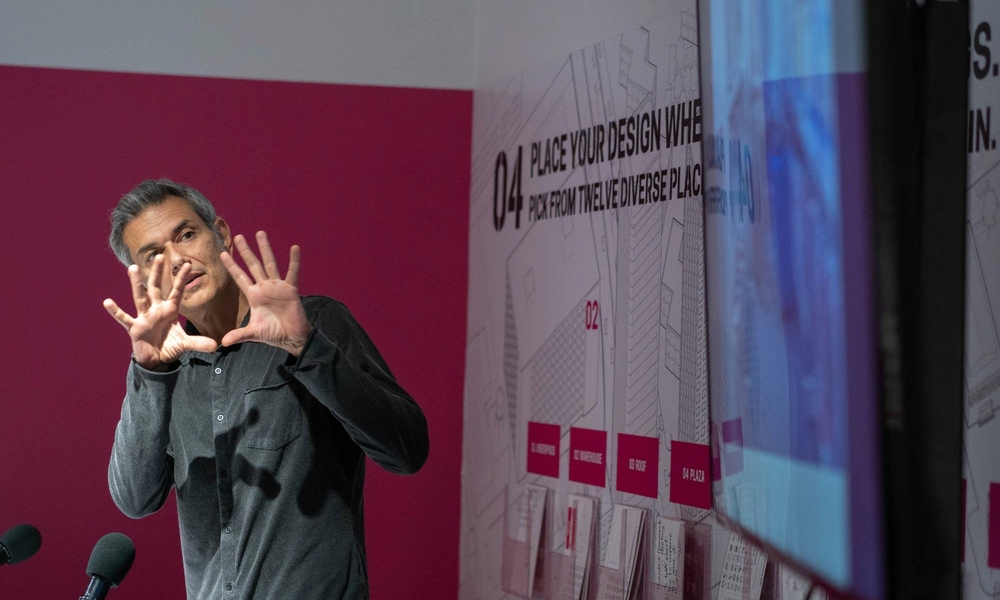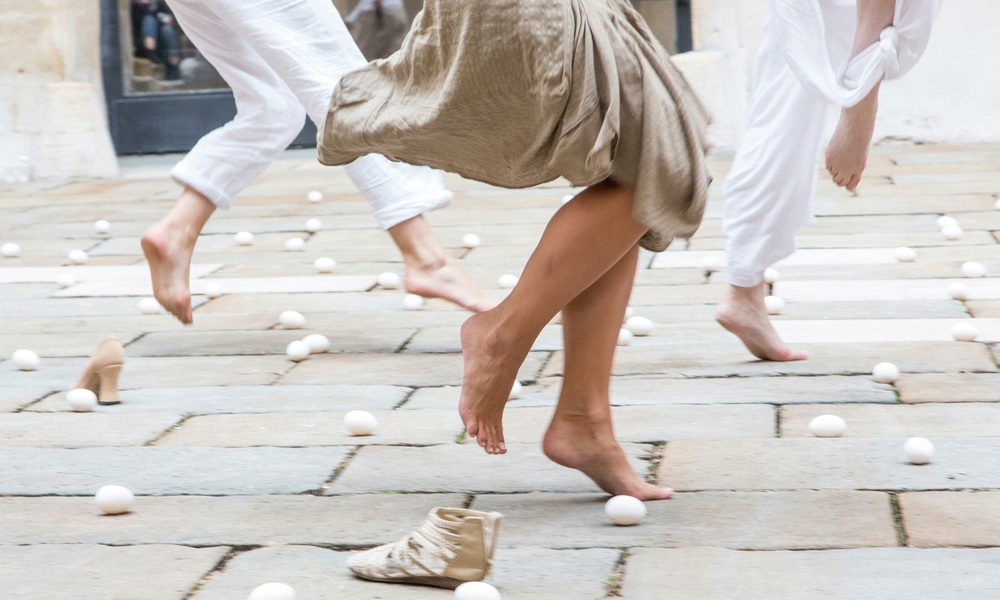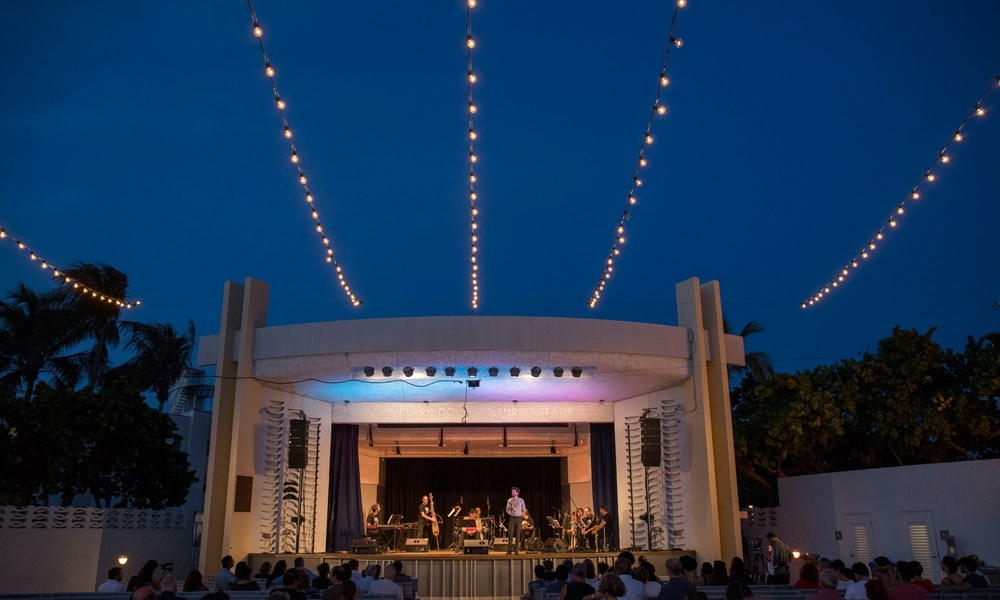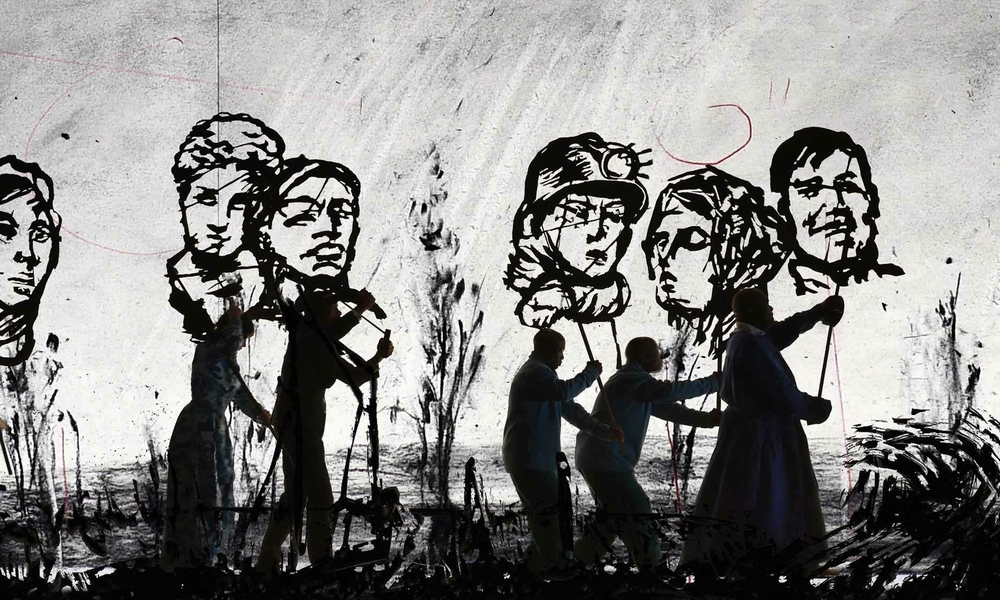Berna Reale: Video Projections
September 29–October 15, 2017
Dimensions Variable,
MDC Wolfson Campus
Berna Reale: Video Projections
Based in her native Belém, the capital and largest city of the northern Brazilian state of Pará, Berna Reale creates lush videos of striking performances that engage social realities and conflicts in contemporary Brazil. Her work focuses particularly on the dynamics of power and coercion, enacting absurd yet compelling situations that can be seen as allegories of capitalism, economic and gender inequality, and systems of state control and discipline. In Rosa Púrpura (Purple Rose, 2014), for instance, a marching band follows a group of fifty women in hot-pink Catholic schoolgirl uniforms, stepping in formation through city streets; their mouths are modified by prosthetics to resemble those of inflatable sex dolls. Reale’s actions, some carried out at considerable personal risk, grippingly dramatize conditions of injustice and violence. While her performances directly address local circumstances, they resonate globally.
Born in Belém in 1965, Berna Reale studied Art at the Federal University of Pará. In 2010 she began a second career as a forensic specialist at the Forensics Center of the State of Pará, and her firsthand experiences with violence, crime, corruption, and the criminal justice system have greatly influenced her provocative installations, performances, and videos. Her work has been exhibited widely in Brazil and in Europe, including at the 2015 Venice Biennale. Solo exhibitions of her work have been held at the Museu de Arte do Rio in Rio de Janeiro in 2013 and at the Utah Museum of Contemporary Art in Salt Lake City in 2016. The exhibition at Dimensions Variable marks only her second show in the United States and includes the North American premiere of many of her works.
Berna Reale: Video Projections is part of Living Together, curated by Rina Carvajal, MOAD’s Executive Director and Chief Curator, and independent curator Joseph R. Wolin. Living Together is made possible by the generous support of Miami-Dade County Department of Cultural Affairs and the Cultural Affairs Council, the Miami-Dade County Mayor and Board of County Commissioners; the State of Florida, Department of State, Division of Cultural Affairs and the Florida Council on Arts and Culture; and the City of Miami Beach, Cultural Affairs Program, Cultural Arts Council.
Berna Reale, Palomo (Pigeon), 2012, video still. Photo courtesy of the artist.
Palomo (Pigeon) is the name of the military horse used by the artist, whose original color is white. Specifically targeting the police as an institution, the artist confronts a figure reminiscent of one of the Four Horsemen of The Apocalypse, symbolizing war, as described in the Bible. The work thus inverts the notion of peace and security that some institutions of power claim to possess.
Os jardins pensus da América (The Suspended Gardens of America), 2012, mineral pigment on Premium Luster photographic paper, 39 3/8 x 59 inches (100 x 150 cm). Photo courtesy of the artist.
The work’s title references the Hanging Gardens of Babylon, one of the Seven Wonders of the ancient world, as well as the gardens of the Queen of Hearts, from Alice’s Adventures in Wonderland, Lewis Carroll’s magnum opus. Beyond the apparent simplicity of a girl watering black flowers, however, the military patterning on her clothes denounces a cruel subtext: the torture and humiliation endured by prisoners at the American base in Guantanamo, which included being urinated on by guards. The watering can waters black flowers that symbolize both Islamic dress and the corpses on which the USA urinates with its army and arms industry, an industry of death.
Berna Reale, Ordinário (Ordinary), 2013, video still. Photo courtesy of the artist.
In Ordinário (Ordinary), Reale collects 40 pieces of bones belonging to anonymous homicide victims in the state of Pará. Such remains are usually found by police in clandestine cemeteries and taken to warehouses, where they remain with no DNA testing to confirm their identities. For the performance, a complex negotiation and process of cleaning and cataloging was required by the artist. After the performance, the bones were returned to the warehouses to remain there for a few more years before being buried forever by the police.
Berna Reale, Ordinário (Ordinary), 2013, video still. Photo courtesy of the artist.
Berna Reale, Cantando na chuva (Singing in the Rain), 2014, video still. Photo courtesy of the artist.
Wearing gold-colored clothes and a gas mask, the artist delivers a rendition of the classic tune “Singing in the Rain.” As she tap-dances on a red carpet at Lixão do Aurá, the main active landfill in Brazil’s state of Pará, Reale creates a metaphor for power in Brazil. The gold symbolizes the accumulation of wealth and the red carpet, the privileges of corrupt politicians that breed unrest among the population and fuel violence. Reale delivers a gripping allegory of how authorities turn a blind eye to poverty in the country.
